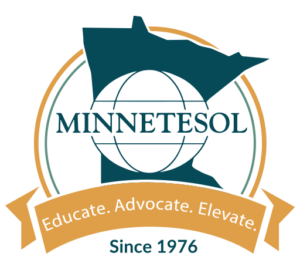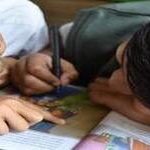Jen Ouellette-Schramm & Jen Vanek
We are pleased to bring you the Spring 2020 issue of MinneTESOL Journal. This issue responds to some of the challenges and opportunities this coronavirus era has posed to English language learners and teachers. In her invited piece, “The Education of Latinx Bilingual Children in Times of Isolation: Unlearning and Relearning,” Dr. Ofelia García challenges conventional conceptions of minoritized Latinx bilinguals, language proficiency, and language teaching, and suggests new ways of teaching Latinx children with care. In her invited piece, “New Ways of Serving Adult ESOL Learners: Innovation Stems from Disruption,” Senior Editor Dr. Jen Vanek shares resources and strategies to help instructors who support adult ESOL learners employ educational technology to not only meet the demands of teaching at a distance during the pandemic, but also to rethink how lessons learned now might create opportunity for further expanding learner access and personalization after a return to face-to-face education is possible.
In their article, “How Dispositions Are(n’t) Addressed in the English Learner Case Study Assignment,” Dr. Miranda Schornack, Dr. Michelle Benegas, and Amy Stolpestad analyze the potential of a teacher education methods course assignment for promoting dispositional development toward equitably serving English language learners. Finally, in his piece, “Building an Integrative Classroom,” Matt Delaini reflects on applying social work concepts to ESL teaching to support student motivation and develop humane ways of responding to motivational challenges.
This issue also marks a change in MinneTESOL Journal leadership, as Dr. Jen Ouellette-Schramm concludes her three-year tenure co-editing the journal and welcomes Dr. Michelle Benegas as a new editor. We are all very excited to have Michelle take on this leadership role. Michelle Benegas, Ph.D., is an assistant professor at Hamline University. She has taught ESL in K-12, adult basic education, and college settings. In her work with teachers and schools, she promotes a model in which ESL teachers serve as site-based experts and coaches to their general education colleagues. Her research interests include ESL teacher leadership, teacher leader identity, and systemic approaches to improving EL services.
Please stay well! Enjoy these articles, share them with your colleagues, and stay connected to our MinneTESOL Journal community by following the journal on Facebook and on Twitter (@MnTESOLjournal).











